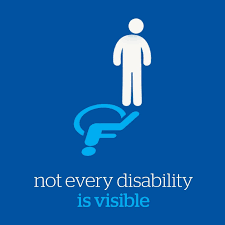
Fetal Alcohol Spectrum Disorders are invisible disabilities. The majority of those with FASD show no facial features at all. Fetal Alcohol Spectrum Disorder includes a range of physical, emotional and developmental delays that affect a person when they were exposed to alcohol during pregnancy. Even 1 drink during pregnancy can cause FASD. When a mother drinks alcohol during pregnancy, it is passed from her bloodstream directly to the fetus’ umbilical cord. The bottom line is this exposure to alcohol in utero causes harmful brain changes so severe that we call this brain damage. FASD is truly a brain disability: in fact FASD is the most prevalent brain-based disorder in the world. Thus we need to CONSIDER the BRAIN.
Behavioral Approach: CONSIDER the BEHAVIORS
Children with FASD are often misdiagnosed and misunderstood. If the area of your brain is damaged that is responsible for memory, emotional regulation, sensory functioning, and organization, then you too would be more apt to have temper tantrums, act impulsively, act unmotivated, and become oppositional. In this culture, we solve “bad behaviors” by finding ways to get rid of them. We focus only on behaviors. We use Behaviorism 101: consequences, rewards, punishments, time-outs, suspension, and incarceration. Problem is that this approach never works for those with FASD. Because people with FASD do not have typical brains and generally struggle with the following processes that the behavioral approach is based upon: Understanding and linking words with actions, connecting punishments or consequences to the behaviors, remembering what happened last time they acted that way, and generalizing information to new situations. So instead of using this approach, CONSIDER the BEHAVIORS, CONSIDER the BRAIN instead.
A 12-year-old boy left his Play Station on the couch one night and his dog ate the controller. His parents punished him by taking away his games for a week as they had warned him many times not to leave it where the dog could get it. When he was able to play again, the boy was so excited. His parents reminded him not to leave the controller on the couch within the dog's reach. So he intentionally put it on the low table. Sure enough the next morning the dog had chewed it up again. The boy told his parents: "But I didn't leave it on the couch." Due to this 12-year-old's FASD, he was unable to predict that leaving the controller on the table was just as dangerous as on the couch. He couldn't generalize that they dog could still ruin the controller from the table too. In the future, the family would need to change their approach from punishment or CONSIDER the BEHAVIORS to CONSIDER THE BRAIN.
 What Does CONSIDER the BRAIN Even Mean?
What Does CONSIDER the BRAIN Even Mean?
If you CONSIDER the BRAIN when you see your child, who happens to have FASD, you learn to view and and support them completely differently. You gain a wholistic vision of your wonderful child. Your new view of your child and your new approach towards them can have amazing results. You truly see that their brain impacts everything they say and do as well as how they react, stay organized, and how they think. With the CONSIDER the BRAIN approach, you can teach your children appropriate strategies, ones rooted in brain science, to help in the areas they struggle with both at home and in school. Their overall happiness will increase. If you CONSIDER the BRAIN, those ‘bad behaviors” will diminish.
Strength Based Approach
CONSIDER the BRAIN means you see your child’s wonderful qualities first: you are using a strength based lens. Next, you lean into prevention as you know their brains are differently wired and schools and typical parenting are not designed with them in mind. You think about how you can change the environment to help your child to thrive. Because you know they can. Because FASD is not a death sentence. You understand that your child has a hidden physical disability. You view that their behaviors are as a result of the changes in their brains from this disability. You think how can I accommodate my child’s world? You definitely read Diane Malbin’s Trying Differently Rather Than Harder and share it with everyone who works with and loves your child. Most importantly, you learn to see your child for who they are and appreciate their beauty! You gain and practice compassion for the things your child struggles with because their birth mother drank alcohol during her pregnancy with them. You CONSIDER the BRAIN!
Keep reading for CONSIDER the BRAIN strategies that really work.





